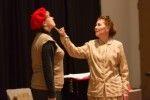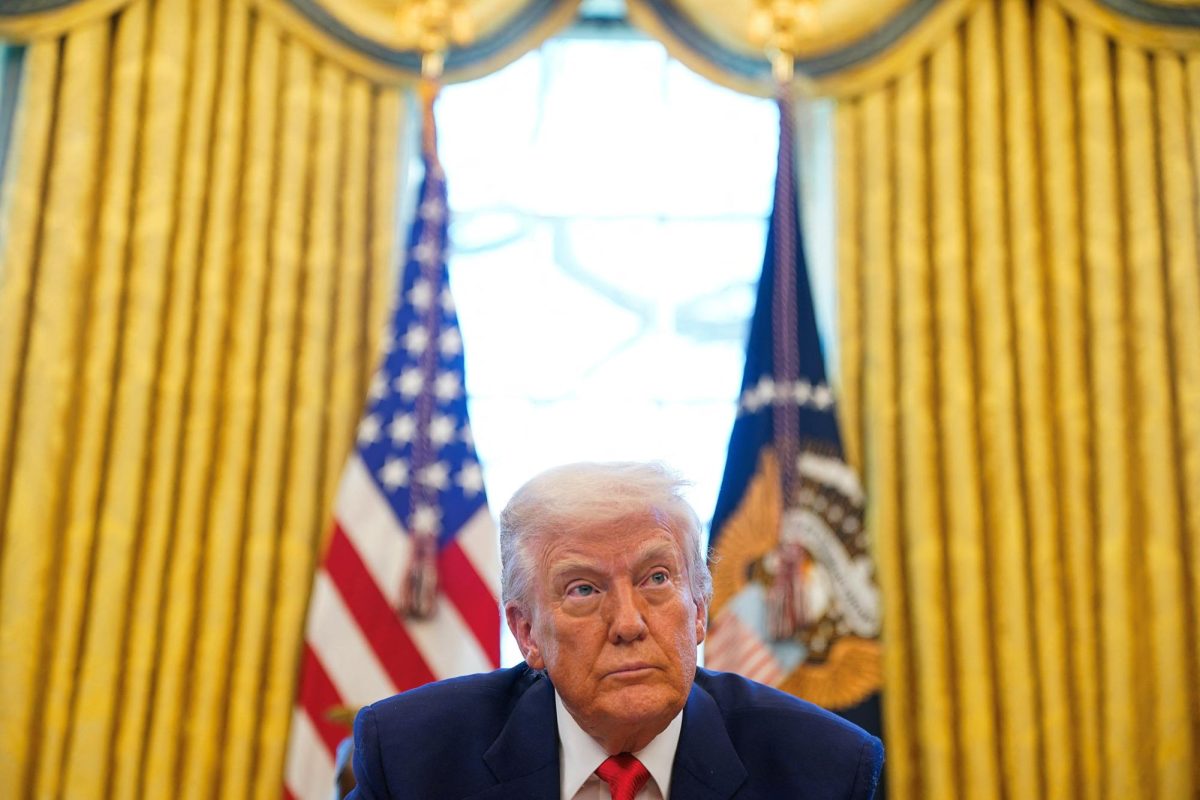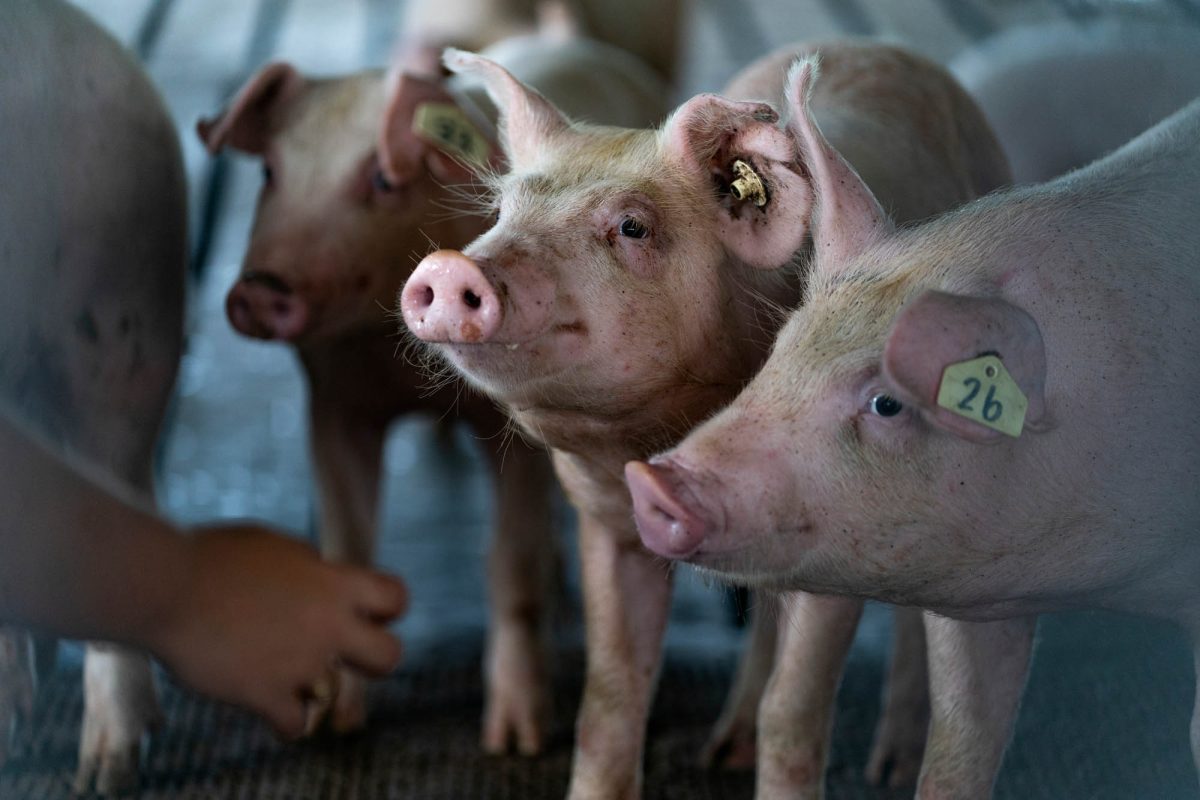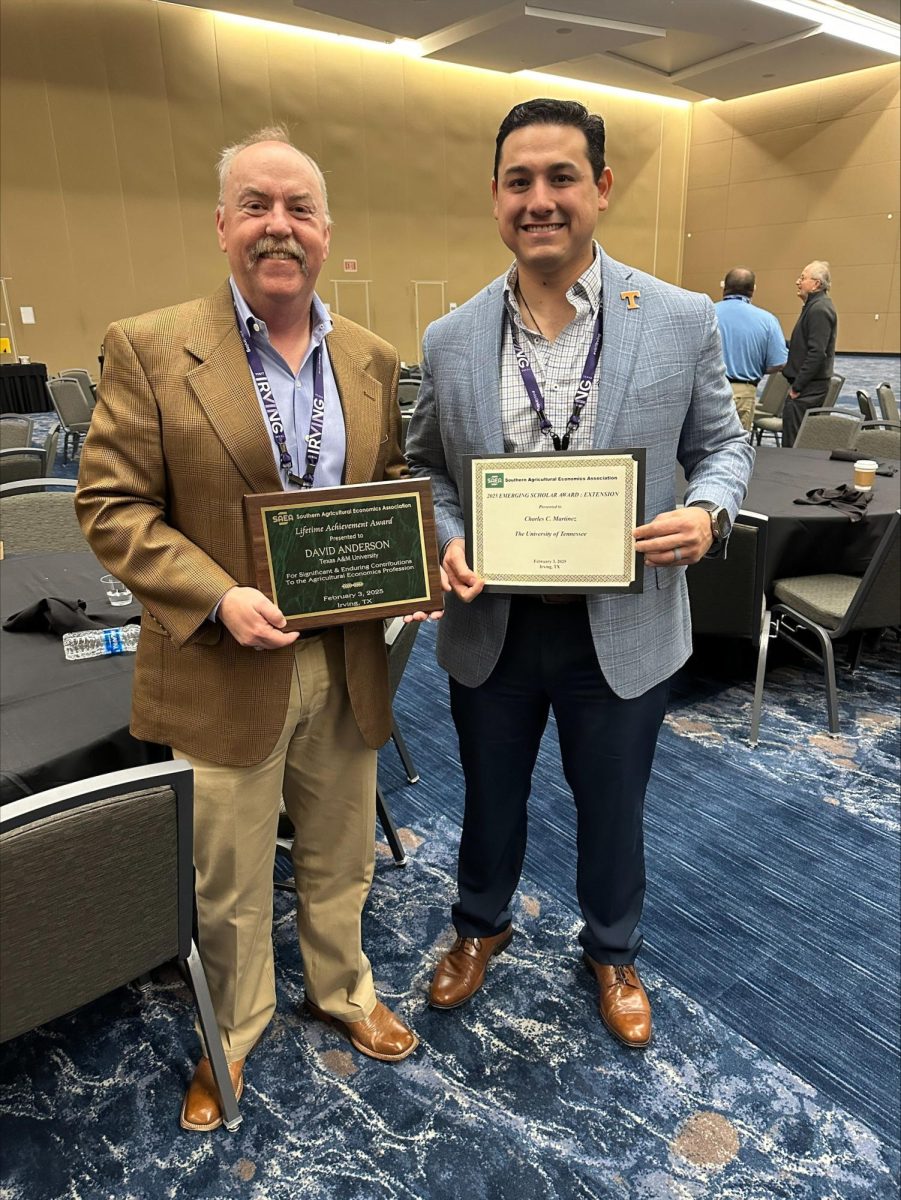The Department of International Studies hosted “The Roads We Did Not Choose” on Saturday, a Russian play about women who were thrown into prison camps by Stalin’s forces.
The creators and performers of the play, Olga Nepakhareva and Elena Tokmakova-Gorbushina, are Russian natives.
The actresses spoke and answered questions from the audience before and after the showing. Olga Cooke, professor of international studies, acted as a translator for the two women.
Nepakhareva said they pulled the dialogue straight from the written accounts of women in the gulags, the system of prisons and labor camps in the Soviet Union, and met with several survivors while producing the play.
“Their feats while surviving the camps are what inspired us to piece together this work,” Nepakhareva said.
The play was performed in Russian with English subtitles projected on a screen behind and above the actors.
While the play focused on the tragedies the women in the gulags faced, the actresses also pulled lighter stories from the writing and would sing poems set to music. The set was simple and there were few costume changes. Nepakhareva said these decisions had a purpose.
“The main thing we use is the text,” Nepakhareva said. “We dispose of unnecessary props so that it wouldn’t take away from the words.”
The play has been primarily performed in Russia, and Nepakhareva said they had to prepare themselves for the backlash they would receive from strong Communist supporters who lived in the Soviet Union era in the audience.
“Some of the most fervent Communists were prepared to beat us up,” Nepakhareva said. “But they’re pretty old Communists so we could probably beat them up.”
Cooke said she first met Nepakhareva and Tokmakova-Gorbushina while touring Russia on a study abroad trip. Cooke talked to the women about performing at A&M and they readily agreed.
Cooke said it is important for students to understand international history, and this event provided an opportunity to do just that.
“Students need to learn about history, not just Russian, but about international affairs,” Cooke said. “It’s important to know about the atrocities so we don’t repeat them.”
The two women have performed the play together for 10 years and have acted in diverse venues, from a stage three-square-meters wide to one the size of a conservatory. Tokmakova-Gorbushina said the content of the play has not changed much over the years but the environment of the performance has.
“The first year, we changed the show a lot because we were taking different excerpts and different works,” Tokmakova-Gorbushina said. “We’d include something and take things out. But for the subsequent eight to nine years, we didn’t change much. Now the play changes because we always have different spaces, which have different feels.”
Lara Henney, sophomore international studies major, is studying Russian as her focus and plans to take a study abroad trip to Moscow for the summer.
“I think it’s significant for getting students to branch out and get to experience a small part of Russian history,” Henney said. “Not many students here or in America as a whole have much knowledge of Russia outside of what they hear in passing and it’s events like these that help develop a deeper understanding of Russia and interest in the country’s complicated and fascinating history.”
Joe Rodriguez, chair of MSC LT Jordan Institute of International Awareness, a sponsor of the play, said the event enables students to learn about cultures they know nothing about and may never even visit.
Cooke said she hoped the audience took away a message of action.
“The message is to be very zealous about defense of freedom,” Cooke said. “Never allow a dictator to incarcerate, murder and torture 30 million people like Stalin did. Don’t stand by. Do something.”
Russians retell stories from the gulag
March 2, 2014

0
Donate to The Battalion
$2790
$5000
Contributed
Our Goal
Your donation will support the student journalists of Texas A&M University - College Station. Your contribution will allow us to purchase equipment and cover our annual website hosting costs, in addition to paying freelance staffers for their work, travel costs for coverage and more!
More to Discover









